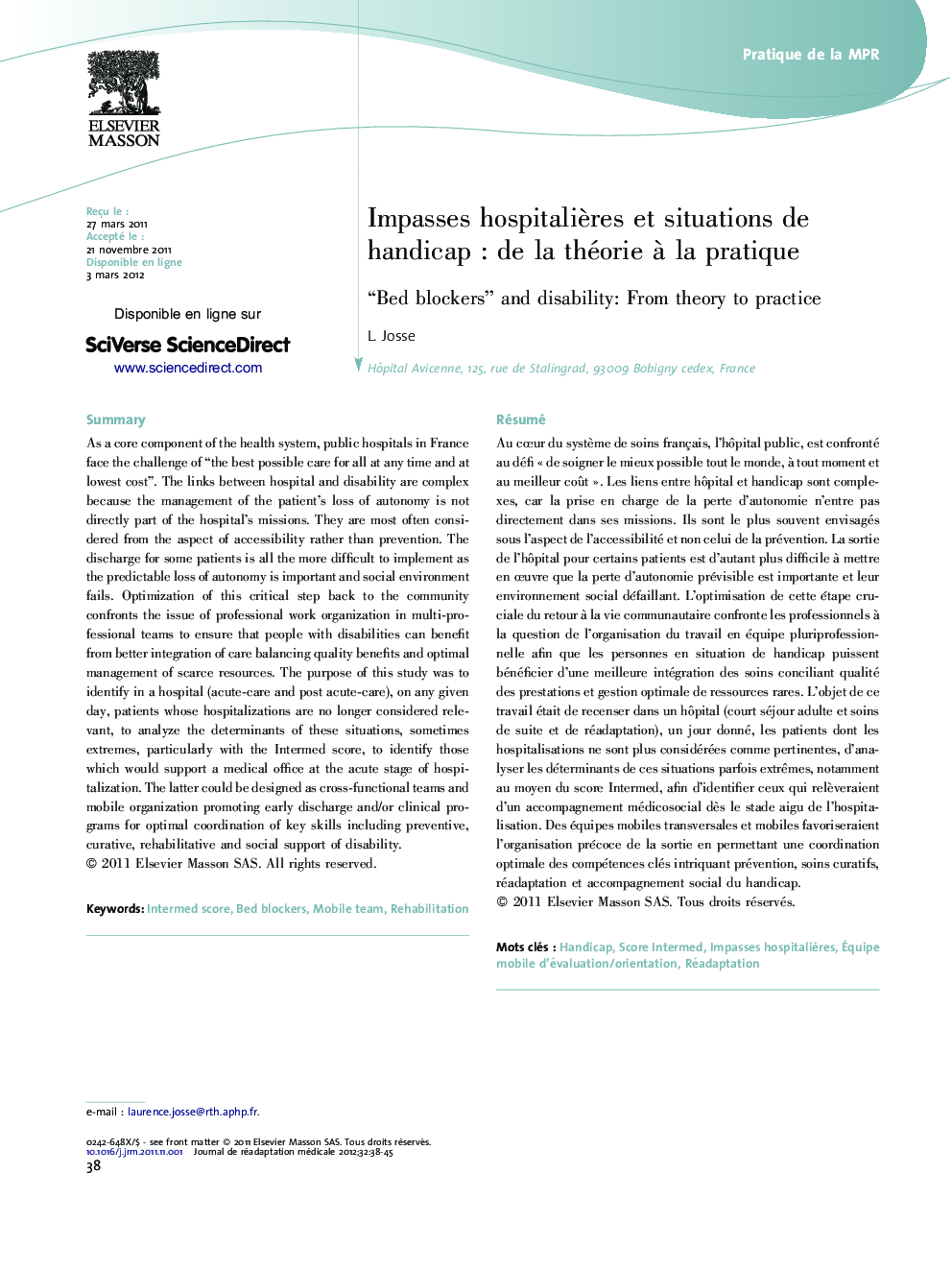| Article ID | Journal | Published Year | Pages | File Type |
|---|---|---|---|---|
| 2700992 | Journal de Réadaptation Médicale : Pratique et Formation en Médecine Physique et de Réadaptation | 2012 | 8 Pages |
Abstract
As a core component of the health system, public hospitals in France face the challenge of “the best possible care for all at any time and at lowest cost”. The links between hospital and disability are complex because the management of the patient's loss of autonomy is not directly part of the hospital's missions. They are most often considered from the aspect of accessibility rather than prevention. The discharge for some patients is all the more difficult to implement as the predictable loss of autonomy is important and social environment fails. Optimization of this critical step back to the community confronts the issue of professional work organization in multi-professional teams to ensure that people with disabilities can benefit from better integration of care balancing quality benefits and optimal management of scarce resources. The purpose of this study was to identify in a hospital (acute-care and post acute-care), on any given day, patients whose hospitalizations are no longer considered relevant, to analyze the determinants of these situations, sometimes extremes, particularly with the Intermed score, to identify those which would support a medical office at the acute stage of hospitalization. The latter could be designed as cross-functional teams and mobile organization promoting early discharge and/or clinical programs for optimal coordination of key skills including preventive, curative, rehabilitative and social support of disability.
Related Topics
Health Sciences
Medicine and Dentistry
Orthopedics, Sports Medicine and Rehabilitation
Authors
L. Josse,
